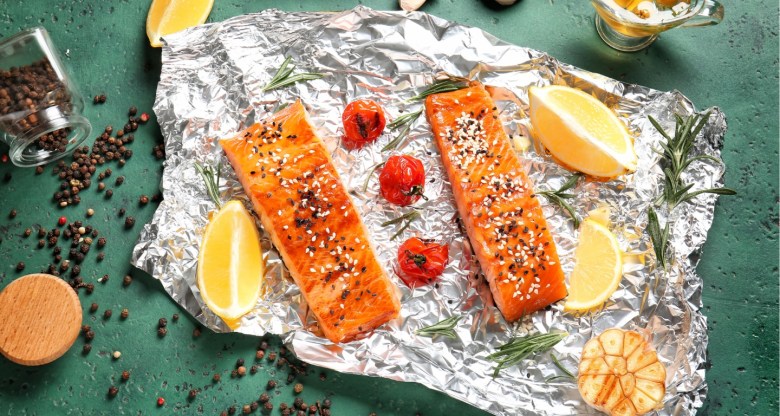Foods With Immune-Boosting Powers

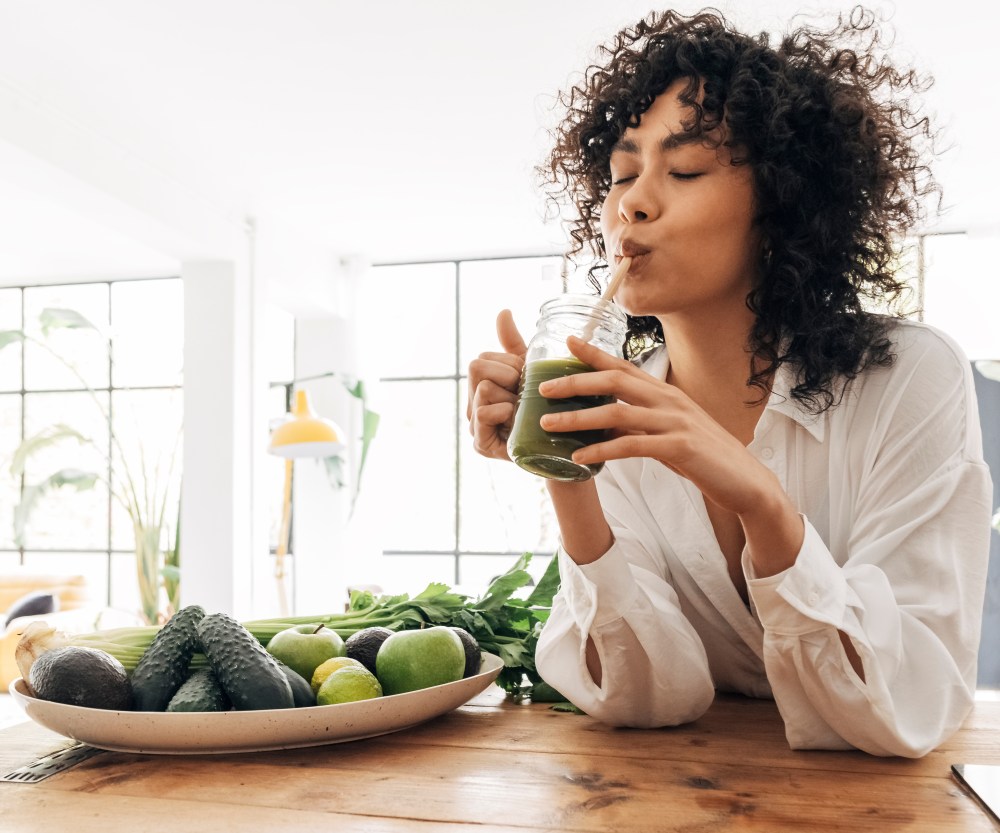
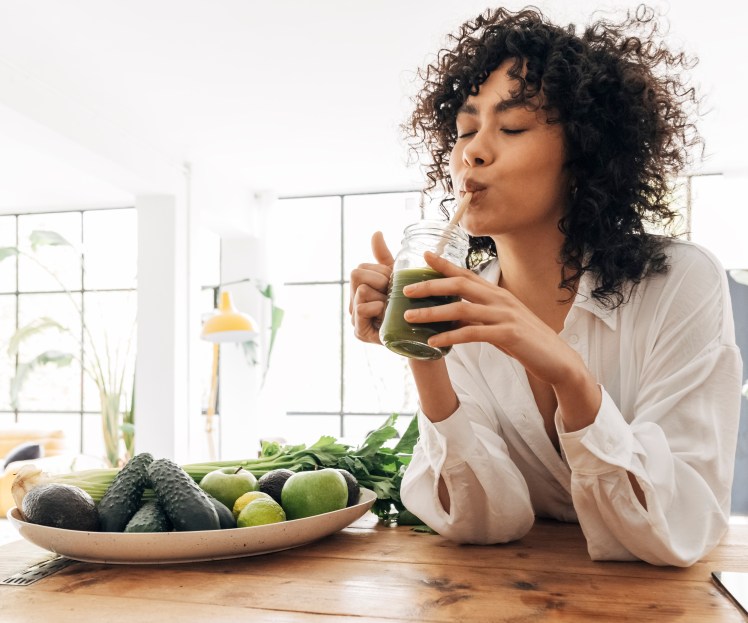
During this year’s cold, flu, and (never-ending) COVID-19 season, it’s even more important to stock your fridge and pantry with groceries that support a healthy immune system.
Your immune system is your body’s top defense against viruses that cause colds, flu, COVID-19, and other illnesses.[1] It also helps you recover when those germs break through your defenses and make you unwell.[2] The nutrients you get from food and drinks can help keep your immune system in peak performance.[3]
Choose the best foods for boosting the immune system
Look for immunity-boosting food and drinks with these nutrients: [4]
Omega-3 fatty acids
Omega-3 fatty acids are a type of healthy unsaturated fat that helps fight inflammation brought on by illness.[5] This fat may also help keep inflammation at bay, lowering your chances of getting sick.[6]Your body can’t make this essential nutrient. You can only get omega-3 fatty acids from foods.
Good sources of omega-3s include:[7]
- Salmon, tuna, mackerel, herring, sardines, anchovies, oysters and other fatty fish
- Chia seeds, hemp seeds, walnuts
- Edamame (soybeans)
- Ground flaxseeds and flaxseed oil, canola oil and soybean oil
- Pasture-raised eggs and Omega-3-enriched eggs
- Omega-3 enriched juice, milk, and yogurt
- Dark leafy greens, such as spinach, kale, and collards, brussels sprouts and broccoli rab
Vitamin A and beta-carotene
Vitamin A and beta-carotene act as antioxidants, helping your immune system fend off damaging molecules called free radicals.[8] These molecules can build up, putting stress on your body and making you vulnerable to illnesses.[9]
Foods high in vitamin A and beta-carotene include:[10]
- Apricots, cantaloupe, mangoes, guavas, and pink grapefruit
- Broccoli, carrots, sweet potatoes, and butternut squash, red bell peppers
- Dairy products, including milk and cheese
- Dark leafy greens like spinach, kale, collards, and romaine lettuce
- Eggs
- Fortified breakfast cereals
- Seafood, such as tuna, clams, mackerel, herring, and salmon
Vitamin C
Studies have debunked the notion that vitamin C found in citrus fruits, juices, and other products can keep you from catching a cold.[11] But there’s some evidence that the vitamin may ease cold symptoms and shorten how long you’re sick.[12] Vitamin C is also an antioxidant that supports your immune system.[13]
Foods and drinks high in vitamin C include:[14]
- Bell peppers, tomatoes, and white potatoes
- Berries, including blackberries, raspberries, blueberries, and strawberries
- Cabbage family veggies, including broccoli, Brussels sprouts, cabbage, and cauliflower
- Citrus fruits, including oranges, grapefruits, lemons, and limes
- Fortified or 100% fruit juices
- Guavas, papayas, kiwis, and other tropical fruits, such as pineapples, mangoes, cantaloupes and honeydew melons
Green leafy vegetables, including kale, turnip greens, Swiss chard, and spinach
Vitamin D
You probably know that vitamin D helps build strong bones. But this vitamin may also help ease inflammation throughout your body and help fight infections.[15] Some studies suggest that low levels of vitamin D (vitamin D deficiency) can make you more prone to colds, flu, and COVID-19.[16] While more proof is needed, there’s no question that vitamin D does your body (and immune system) good.
Get more D in your diet with these foods:[17]
- Eggs
- Fish, including salmon, swordfish, trout, sardines, herring, tilapia, halibut, and tuna
- Liver
- Mushrooms
- Vitamin D-fortified cereals, juices, and dairy and nondairy products
Vitamin E
Like vitamins A and C, vitamin E also acts as an immune-supporting antioxidant. Studies show this vitamin is especially helpful at lowering the risk of respiratory infections like pneumonia and flu.[18]
You can get vitamin E from these food sources:[19]
- Trout, swordfish, tuna, salmon, shrimp, prawns, and blue crab
- Asparagus, avocados, Spinach, broccoli, beet greens, and collards
- Mangoes and kiwis
- Nuts and nut butters
- Red bell peppers, pumpkin, and butternut squash
- Sunflower seeds
- Sunflower, almond, olive, safflower, and soybean oils
Zinc
Like vitamin C, there’s no evidence that zinc can keep you from getting sick with a cold or other viral illness.[20] However, some studies suggest this mineral may help you get over a cold faster.[21] The studies focused on zinc lozenges (a supplement) and zinc nasal gels and sprays. But you can also get zinc from these foods:[22]
- Beef, pork, and poultry
- Broccoli, spinach, beet greens, and asparagus
- Crab, lobster, oysters, and other shellfish
- Fortified breakfast cereals
- Legumes, nuts, and seeds
- Mushrooms
- Whole grains and whole-grain products
In summary: Choose foods for a healthy immune system
A balanced diet that includes nutrient-rich foods is just one way to support a healthy immune system. It’s also important to take other immune-boosting actions like getting enough sleep, managing stress, staying physically active, and drinking plenty of water.
Now that you know how nutrients and foods boost your immune system, you may be curious about how to make smart shopping choices.
You can start by downloading the grocery app. You’ll save $10* on groceries for creating an account. Next, create a personalized Sincerely Health nutrition profile to receive 1,000 points.
Your nutrition profile allows you to:
- Set specific nutrition goals.
- Earn 10 points for items you purchase for a maximum 100 points per order (that’s 10 items at 10 points each).
FAQs about immune-boosting foods
What fruits are the best for your immune system?
Fruits high in vitamin A, beta carotene, vitamin C, and vitamin E are good for your immune system. These fruits include mangoes, kiwis, berries, and citrus fruits.
What drinks boost your immune system?
Vitamin D-fortified juice, milk, and nondairy beverages can help boost your immune system.
How can you boost your immune system quickly?
A balanced diet that has immunity-boosting, nutrient-rich foods and drinks is a great way to quickly boost your immune system.
Sign up for Sincerely Health and create a nutrition profile to help you get healthy today!
Download your app on the App Store today





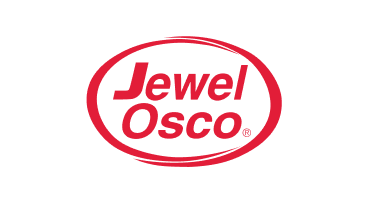




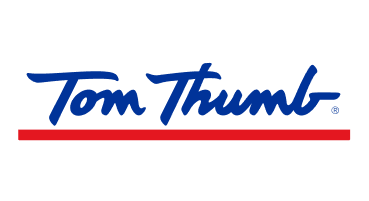

[1] Cleveland Clinic. Immune System. Last reviewed October 20, 2023. https://my.clevelandclinic.org/health/body/21196-immune-system
[2] Cleveland Clinic. Immune System. Last reviewed October 20, 2023. https://my.clevelandclinic.org/health/body/21196-immune-system
[3] Cleveland Clinic. Immune System. Last reviewed October 20, 2023. https://my.clevelandclinic.org/health/body/21196-immune-system
[4] Current Opinion in Food Science. Foods to Deliver Immune-Supporting Nutrients. Last reviewed February 2022. https://www.ncbi.nlm.nih.gov/pmc/articles/PMC8702655/; Harvard T.H. Chan School of Public Health. Nutrition and Immunity. https://nutritionsource.hsph.harvard.edu/nutrition-and-immunity/; Cleveland Clinic. 11 Foods That Boost Your Immune System. Last reviewed December 30, 2022. https://health.clevelandclinic.org/food-to-boost-your-immune-system; European Journal of Clinical Nutrition. Nutrition and Immunity: Lessons for COVID-19. Last reviewed June 23, 2021. https://www.nature.com/articles/s41430-021-00949-8
[5] National Institutes of Health Office of Dietary Supplements. Omega-3 Fatty Acids. Last reviewed July 18, 2022. https://ods.od.nih.gov/factsheets/Omega3FattyAcids-Consumer/
[6] National Institutes of Health Office of Dietary Supplements. Omega-3 Fatty Acids. Last reviewed July 18, 2022. https://ods.od.nih.gov/factsheets/Omega3FattyAcids-Consumer/
[7] National Institutes of Health Office of Dietary Supplements. Omega-3 Fatty Acids. Last reviewed July 18, 2022. https://ods.od.nih.gov/factsheets/Omega3FattyAcids-Consumer/; Cleveland Clinic. Omega-3 Fatty Acids. Last reviewed November 17, 2022. https://my.clevelandclinic.org/health/articles/17290-omega-3-fatty-acids
[8] Cleveland Clinic. 11 Foods Full of Beta-Carotene and Their Health Benefits. Last reviewed October 18, 2023. https://health.clevelandclinic.org/beta-carotene
[9] Cleveland Clinic. Why You Should Care About Free Radicals. Last reviewed July 19, 2022. https://health.clevelandclinic.org/free-radicals
[10] National Institutes of Health Office of Dietary Supplements. Vitamin A and Carotenoids. Last reviewed April 12, 2022. https://ods.od.nih.gov/factsheets/VitaminA-Consumer/
[11] National Library of Medicine. Common Colds: Research Summaries – Does Vitamin C Prevent Colds? Last reviewed December 11, 2023. https://www.ncbi.nlm.nih.gov/books/NBK279544/
[12] American Journal of Lifestyle Medicine. Vitamin C in the Prevention and Treatment of the Common Cold. Last reviewed February 9, 2016. https://www.ncbi.nlm.nih.gov/pmc/articles/PMC6124957/
[13] Harvard T.H. Chan School of Public Health. Vitamin C. Last reviewed March 2023. https://nutritionsource.hsph.harvard.edu/vitamin-c/
[14] Harvard T.H. Chan School of Public Health. Vitamin C. Last reviewed March 2023. https://nutritionsource.hsph.harvard.edu/vitamin-c/
[15] Harvard T.H. Chan School of Public Health. Vitamin D. Last reviewed March 2023. https://nutritionsource.hsph.harvard.edu/vitamin-d/
[16] Harvard T.H. Chan School of Public Health. Vitamin D. Last reviewed March 2023. https://nutritionsource.hsph.harvard.edu/vitamin-d/
[17] Harvard T.H. Chan School of Public Health. Vitamin D. Last reviewed March 2023. https://nutritionsource.hsph.harvard.edu/vitamin-d/
[18] IUBMB Life. Regulatory role of vitamin E in the immune system and inflammation. Last reviewed November 30, 2018. https://www.ncbi.nlm.nih.gov/pmc/articles/PMC7011499/
[19] Harvard T.H. Chan School of Public Health. Vitamin E. Last reviewed March 2023. https://nutritionsource.hsph.harvard.edu/vitamin-e/
[20] Cleveland Clinic. Can Vitamin C or Zinc Cure a Cold? Last reviewed December 28, 2022. https://health.clevelandclinic.org/can-immune-boosters-with-vitamin-c-or-zinc-help-my-cold
[21] BMJ Online. Zinc for the prevention or treatment of acute viral respiratory tract infections in adults: a rapid systematic review and meta-analysis of randomised controlled trials. Last reviewed October 10, 2021. https://www.ncbi.nlm.nih.gov/pmc/articles/PMC8578211/
[22] Harvard T.H. Chan School of Public Health. Zinc. Last reviewed March 2023. https://nutritionsource.hsph.harvard.edu/zinc/















